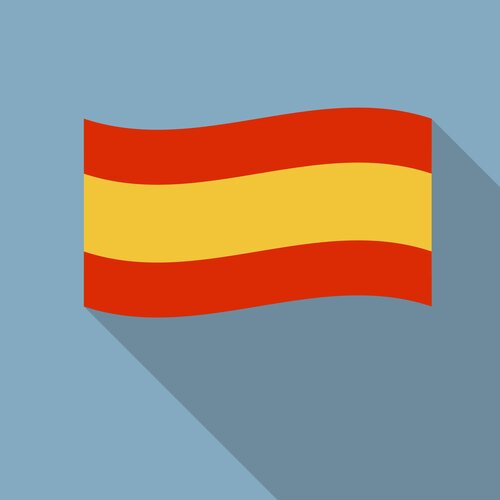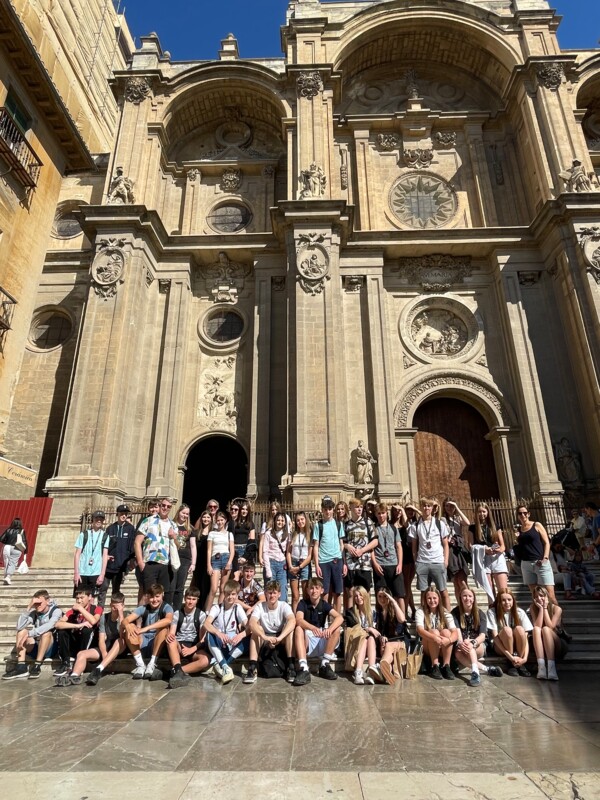
GCSE Spanish
Ready to go global? GCSE Spanish is more than just learning words - it’s about opening doors and developing a competitive edge that stands out to universities and future employers.
GCSE Spanish helps you develop valuable skills in communication, cultural understanding, and critical thinking. By exploring real-world topics like identity, relationships, healthy living, and global issues, you’ll improve your ability to converse fluently, understand diverse perspectives, and express yourself effectively. These skills not only boost your language proficiency but also enhance your ability to adapt in a globalised world, making you more competitive in future studies and career opportunities.
Spanish gives you the tools to connect with millions of people worldwide.
Pupils study GCSE Spanish over a 2-year period and cover three thematic areas, with sub-topics within the below theme areas following the AQA GCSE Specification.
Theme One: People and Lifestyle
Theme One covers the following three topics:
- Topic One: Identity and relationships with others
- Topic Two: Healthy living and lifestyle
- Topic Three: Education and work.
Theme Two: Popular Culture
Theme Two covers the following three topics:
- Topic One: Free-time activities
- Topic Two: Customs, festivals and celebrations
- Topic Three: Celebrity culture.
Theme Three: Communication and the World Around Us
Theme Three covers the following three topics:
- Topic One: Travel and tourism, including places of interest
- Topic Two: Media and technology
- Topic Three: The environment and where people live.
GCSE Languages are assessed through four skill areas, listening, speaking, reading and writing at the end of the course. Each skill equates to 25% of the final grade.
There are two tiers of entry, Higher and Foundation. Higher allows pupils to achieve grades 9-4 and Foundation 5-1. Pupils should have an idea of the tier of entry they will be aiming to sit in the final examinations, but these are reviewed throughout the course in relation to the Pre-Public Examinations (PPEs). Final decisions on tier of entry are made following the second series of PPEs.
Paper Two: Speaking - takes place before the main exam period.
Paper One: Listening and Paper Three: Reading - takes place in the same examination session, with Paper Four: Writing - taking place in a separate exam session.
Pupils will be assessed throughout the two year course in all skill areas. In Year 10, pupils will sit a full mock paper in each skill area by the end of the academic year.
In Year 11 students pupils will complete PPEs, one in October/November, and one in February. In both of these, pupils will sit Paper One, Paper Three and Paper Four.
A second speaking mock examination will take place in January, with the first mock speaking examination completed in June of Year 10.
In addition to this, we have several common interim assessments mainly focussing on the written aspect of the examination.
Independent learning is key for success in Modern Foreign Languages; therefore an independent learning programme will be in place with three key activities to be completed weekly.
- Vocabulary learning
- Topic test from Exampro, testing listening and reading skills with past examination questions
- Speaking revision - this comes in the format of a speaking booklet with some example questions that pupils can prepare responses to and revise from these for their speaking and in turn support their writing exam.
Spanish is a highly valued subject not only by top universities, but also employers and businesses. Studying Spanish opens a massive range of career doors.
- Direct Careers: Translation, interpreting, teaching, and international diplomacy, journalism, military.
- Business & Law: International law, global sales, marketing, and logistics.
- Travel & Media: Journalism, tourism management, and international relations.
- Transferable Skills: Beyond the language, you’ll gain critical thinking, enhanced memory, and cultural empathy—skills that are in high demand in every professional sector.
There are plenty of useful websites for additional revision:
AQA website: www.aqa.org.uk
Students can use this to access the vocabulary specification to learn and a variety of past papers.
BBC Bitesize: GCSE Modern Foreign Languages - BBC Bitesize
Another useful website, with practice questions and past exam papers and revision videos and notes.
Quizlet: Languages Flashcards | Quizlet
An immersion visit takes place in Year 10, with previous visits to Málaga and Seville.
In addition to this, pupils may have the opportunity to take part in one of the several other extracurricular activities:
- Speaking practice with the Spanish Language assistant or with Spanish teachers after school.
- National competitions (ranging from Poetry and story writing through to solving international crimes!).
- The in-school 'Duolingo' league.
- Workshops around short films or creative translation.
- Tapas visits.


